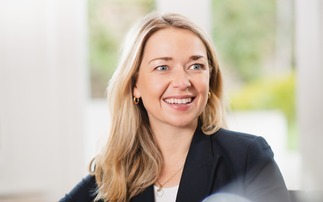Takaful insurance is common in most of the Muslim world, but what is its potential in the UK? Greg Becker looks at one of the most developed takaful markets - Malaysia.
Takaful is an Islamic insurance product design that does not contradict Islamic law. A Shariah-compliant alternative to traditional insurance, takaful is based on the principle of mutual assistance and voluntary contributions (or tabarru, which are similar to donations), where resources are pooled to help the needy.
Under a takaful contract there can be no gharar (uncertainty), maysir (gambling) or riba (interest), and they must be halal (permissible) and avoid haram (prohibitive) dealings.
Under conventional insurance, risk is transferred from insured to insurer for a premium. Essentially, risk is traded and the insured has no share in profits. Takaful contracts have different characteristics, and need to be carefully set up to be seen as Shariah-compliant.
Here are examples of the way the contracts can be constructed to meet the requirements for gharar, maysir, riba and haram:
- Gharar: premiums are seen as voluntary donations to mutually help others in the case of a loss without any pre-determined monetary benefit (i.e. there are no guarantees). Gharar is tolerated since policyholders are acting as both insurers and insured.
- Maysir: the contract needs to be strictly a contract of indemnity.
- Riba: investments must be Shariah-compliant, which requires that the underlying assets are free of riba (e.g. Islamic bonds).
- Haram: the investment policy should be socially responsible, avoiding investments in prohibited areas which include alcohol, armaments and gambling.
Engaging in the business of takaful involves the creation of a Shariah supervisory board, staffed with Islamic scholars, to ensure compliance with Islamic law; the separation of operator funds from policyholders funds; the commitment to distribute profits to policyholders; and the avoidance of investment in assets not Shariah compliant.
There are various ways in which takaful operations can be structured. Here are four examples:
- Mudarabah (profit-sharing) model: takaful operator acts in partnership with the policyholders and shares the investment income and underwriting surplus.
- Wakalah (fund management) model: operator acts as an agent (fund manager). The fund charges a fixed fee and does not share in any profit.
In Malaysia’s market, Shariah scholars approved some profit-sharing in technical results to encourage operators to improve the results of the rabarru/risk fund. This, however, is only approved in Malaysia, and not in other markets.
- Hybrid or combined model: wakalah contract is used for underwriting activities, and mudarabah contract used for investment activities.
- Wakalah-waqf model: same as the wakalah model, but has the distinctive feature of an embedded endowment.










